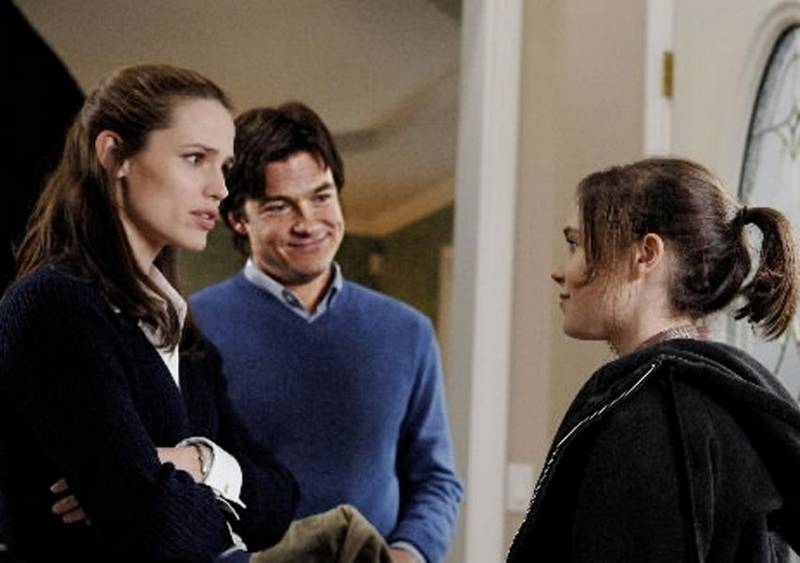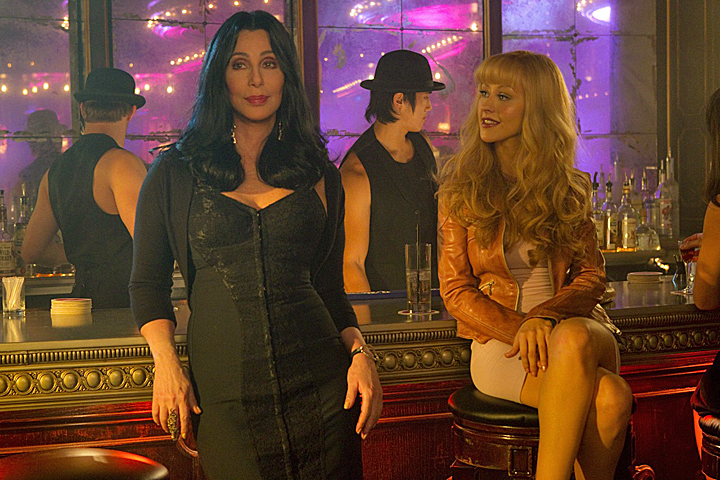Q I have been following the debate about the clever dialogue in “Juno” and there are two things I don’t understand: (1) Why do people continue to expect every film they see to be a flawless reflection of reality when no film, not even a documentary, could ever accomplish such a feat? Isn’t one of the pleasures of going to the movies is seeing things we don’t usually see in the real world? (2) Why aren’t more people refreshed that a film has gone against the grain by creating characters more intelligent than real people, as opposed to the Hollywood norm of creating characters who are considerably dumber and more shallow than real people? Adam Breckenridge, Edmond, Okla.
A. In other words, to quote Professor Higgins, why can’t people be more like us? There’s a sort of Mediocrity Enforcement Squad that slaps down anything with the effrontery to be different. Just last week, Jim DeRogatis, the usually infallible pop music critic of the Sun-Times, strayed from his beat to attack “Juno,” which he “hated, hated, hated” (a melodious phrase) because, among other reasons, it had the wrong music! He wrote:
“Here is a 29-year-old screenwriter (Cody) and a 30-year-old director (Reitman) brainstorming with a nearly 21-year-old actress (Page) and deciding that the intentionally primitive and infantile sounds recorded by a 35-year-old musician (Kimya Dawson) epitomize ‘the music that the kids today really listen to.’ This sort of contrivance hardly smacks of the honesty and humor the filmmakers brag about, and which many critics have hailed.”
Ebert again. DeRogatis is right. The movie should have been written, directed and scored by 16-year-olds. Someone easily could have found the funding for them. But to call Kimya Dawson “primitive and infantile,” when he complains that the movie uses the wrong track from Sonic Youth (that most mature of bands) seems like indigestion. True, Kimya Dawson is 35. Sonic Youth’s average age is 50.
Jim’s real problem is that Juno doesn’t like the same music he likes. I know how he feels. If only these damn kids would listen to the critics, they’d like what we like. His other problem is that real teens don’t talk like Juno. Real 16-year-old rock critics don’t talk like the Patrick Fugit character in “Almost Famous,” either. In short: Movie characters don’t talk like real people. If they did, they’d drive us nuts.
Q. I just saw “Juno,” which I can now say, with full confidence, is my favorite movie of the year. I told my husband, “How interesting that a movie can warm my heart and break it at the same time.” Ellen Page is a treasure, to be sure.
But I can’t think of another cast of actors who were as suited for their roles as this cast. Michael Cera, Allison Janney, J.K. Simmons, Jason Bateman and Jennifer Garner were the absolute best choices for their roles, and I believe that anyone else would have diminished the movie on some level. Do you agree? What other movies can you name that are near-perfect because of their casting? Karen Brown, Ridgeland, Miss.
A. I agree, and all the more so because none of the casting, particularly of Simmons and Janney, is at all obvious. Nor is Ellen Page your average terminally cute teen ingénue. Too smart, for one thing. Full credit to casting directors Kara Lipson and Mindy Marin, and to director Jason Reitman himself, who made some of the choices. Juno’s best friend, Leah (Olivia Thirlby), by the way, was brought along by Page; they’re close friends in real life. Another movie with a perfect cast, largely of then unknowns: “Bonnie and Clyde.”
Q. I absolutely loved “Sweeney Todd” and quickly snapped up the soundtrack and listened to it endlessly. I came across something that I didn’t catch while watching the film. It takes place in London. Why then do the characters refer to “pennies” when talking about money? The way I understand it, a penny is a single U.S. cent. Is this just a slipup? Shane Mulholland, Glendale, Calif.
A. Nope. Britain has had the penny coin since 1714. It has been sadly reduced in size since decimalization, but once when it was so robust, it made your pants sag. A kid got one of those, it looked like money. And to quote David Mamet: “Everybody likes money. That’s why they call it money.”
Q. How is it you can throw one star and a bedpan at a movie like “The Bucket List,” and yet after reading your darn review, I wanna see it? Carl Finch, Medford, Ore.
A. I have succeeded. Any review, whether positive or negative, should give the reader a fair idea of what it would be like to see it themselves. I refer you to an actual conversation I once had on the phone:
Caller: “We live near the Wilmette Theatre, which is showing ‘Cries and Whispers.’ What can you tell us about it?”
Self: “I think it is the best film of the year.”
Caller: “Oh, that doesn’t sound like anything we’d want to see!”
Q. As an avid filmgoer who came of age in the mid-’80s, there were few filmmakers who I grew to trust for sheer quality of a commercial (not necessarily artsy) film than Rob Reiner. He had a seven-film hit streak to start his career (“This is Spinal Tap,” “The Sure Thing,” “Stand by Me,” “The Princess Bride,” “When Harry Met Sally,” “Misery” and “A Few Good Men“) that even his “North” couldn’t derail (he followed that up with “The American President“).
But I don’t think I’ve seen a proven director hit such a brick wall as Reiner has. His last five films (“Ghosts of Mississippi,” “The Story of Us,” “Alex and Emma,” “Rumor Has It” and now “The Bucket List”) have all scored “rotten” on the Tomatometer. I had the poor fortune of getting free passes to a sneak preview of “The Bucket List” and came away sad that Reiner has bottomed out and seems to be taking busywork. Have you ever seen as sure a director crumble this badly before? How do you think he might pull out of this tailspin? Ed Vaira, San Diego
A. Just got this Alfred Hitchcock quotation re the writers’ strike from Dennis Hussey of San Carlos, Calif.: “To make a great film, you need three things — the script, the script and the script.” I’m sure Reiner still has his directing chops, if he can get his hands on a great screenplay. In the meantime, despite its reviews, “The Bucket List” is doing well at the box office.
Q. I am a fine arts student at Iowa State University. Currently I’m painting a series depicting movie scenes with people in bear suits. So far I have painted a scene from “The Shining” and a scene from the “The Science of Sleep.” I am really proud of what I have created so far, but I’ve hit a creative road block; I can’t think of any more movies with people dressed as bears. Daniel Stender, Ames, Iowa
A. Well, director Jean Renoir wears a bear suit in his great film “The Rules of the Game.” But your question rouses my curiosity. Why did you choose this subject? If you have run out of movies after two paintings, how much preliminary research did you put in? Do we get to see the people inside the bear suits, or only the bear suits?












